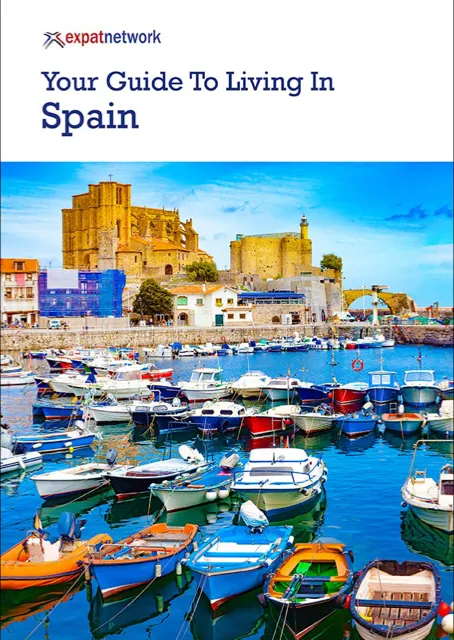Spain’s New Digital Nomad Visa – Who’s Eligible And The Tax Benefits

Spain’s Digital Nomad Visa allows those who work remotely to live in Spain for a few years, and also provides access to a beneficial tax regime.
Written by Jason Porter of Blevins Franks
You may be able to move to Spain a few years earlier than expected now, and not have to wait right until retirement. The new Start Up Law and its Digital Nomad Visa has opened the door for UK and other non-EU nationals to live and work in Spain if they are able to work remotely. And besides the considerable benefit of enjoying living in Spain, the regime can offer considerable tax advantages, including for those winding up a UK business.
What is Spain’s Digital Nomad Visa?
The Digital Nomad Visa (or Visa for Telework of International Character to use its official name) is a key component of Spain’s new Law for the Promotion of Start-up Ecosystem Companies – more commonly called the ‘Start Up Law’. Finally approved on 21 December 2022 after years of negotiations and legislative process, its main objective is to attract and retain investment and talent in Spain.
It does this by making it easier for non-EU nationals to work remotely in Spain and offers tax benefits to encourage them to do so.
Who is eligible and what are the conditions?
To qualify for a Digital Nomad Visa, you must meet the following criteria:
- You work remotely (online) for a company located outside the EU/EEA, or perform a maximum of 20% of your professional activity for a Spanish based company.
- You have been working for the company for at least three months before application and your work contract is for at least one year.
- You can demonstrate three years of work-related experience or have graduated from a reputable university or business/training school.
- Supply a clean criminal record covering the last five years.
- Have private medical insurance for Spain.
- Supply a bank certificate proving you have at least €25,000 on deposit, plus €9,441 for each family member who joins you.
- It is also possible to obtain a visa as an entrepreneur in Spain. Your activity must be considered as entrepreneurial by ENISA (a Spanish state-owned company providing financial support to small and medium-sized enterprises).
If you are approved for the Digital Nomad Visa your spouse and dependent children can live in Spain with you.
How long is the Digital Nomad Visa valid?
If you apply at the Spanish Consulate in your home country before moving to Spain, the visa will initially be valid for one year. You can then apply for residence authorisation for another three years.
If you apply directly in Spain while on a tourist visa, your Digital Nomad Visa will cover three years. You may then be able to apply for a renewal.
What are the tax benefits of the Beckham Law Regime?
Once you are in possession of a Digital Nomad Visa, you can apply to be covered by the so-called ‘Beckham Law Regime’ (which originated when David Beckham was playing for Real Madrid). This tax regime has been modified as part of the Start Up Law to make it even more attractive.
The tax benefits are:
- You will be considered as non-tax resident for the year of relocation and the following five tax years.
- While your employment income will be taxed in Spain, wherever it is paid/received, the income tax rate for income up to €600,000 is favourable: just 24%. After that, it’s 47%. Normally the 47% rate applies on income over €300,000 (though this varies per region, in Comunidad Valenciana, for example, the 47% rate kicks in for income over €65,000). Other (non-employment) income earned outside Spain is not subject to Spanish income taxes.
- When it comes to pension income, only funds accumulated as a Spanish resident are taxed.
- Since are you considered a non-resident for tax purposes, you will not be liable for wealth or solidarity tax on worldwide assets. Spanish assets will be liable, but the allowances are very high.
You can apply to be taxed under this regime if you have not been resident in Spain for the previous five years (it used to be ten) and are moving to Spain under an employment contract or with a Digital Nomad Visa.
You can also apply as a director of an entity. The exception is directors of asset-holding entities with 25% or more of its capital who will not be able to apply the regime.
Your family members can apply for this favourable tax regime by extension.
Entrepreneurs, however, are not eligible for this tax regime as it only applied to those with an employment contract (including teleworkers) and company directors with a professional activity.
What about UK tax?
Employment income – this will depend on your tax residence status under the UK Statutory Residence Test. If this test (or the treaty ‘tie breaker rules’) deem you to be non-UK resident, only UK source income will be taxed there. Your work conducted remotely from Spain would just be taxed in Spain as described above), even if paid from the UK. Unless you carry out substantial work in the UK, your employer can apply for a NT (no tax code) to pay you on a gross basis.
Capital gains – if you are living in Spain under the Digital Nomad Visa, gains made on the sale of shares – including shares in your UK company – could be free of capital gains tax in both countries. This is provided you remain a non-UK resident for five UK tax years.
Dividends – if the disregarded income treatment applies (you give up the UK personal allowance) the UK tax liability is highly reduced or might even be nil. And dividends received from UK companies are not taxable in Spain.
Who will this appeal to?
This new visa obviously appeals to digital nomads who fancy living in Spain for a few years.
But it is particularly attractive to UK professionals and businesspeople who plan to retire in the next few years. If you are on a high UK salary and your company allows you to work remotely, you may be able to move to Spain under the Digital Nomad Visa and pay less income tax under the Beckham regime.
If, as part of your retirement plans you will be selling shares in your UK company, and if you dispose of them while living and working in Spain under this visa, you escape capital gains tax in both countries. This could be a considerable saving.
If this applies to you, seek advice from a cross-border wealth management firm that understands the intricacies of both Spanish and UK taxation and the interaction between them, and who can help you plan and time your relocation and when you sell UK assets to take full advantage of the tax saving opportunities.
Re-published with the agreement of Blevins Franks
To assist you in planning your move to Spain download our Guide containing all the information you will need to make the move:
